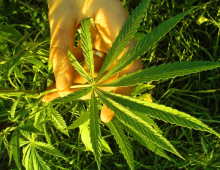Lee-Ann Persse
If you’ve ever done any sort of watersport – surfing, rowing, anything – you’ll be familiar with the feeling like you’re losing your balance. Sometimes, you see it coming, sometimes it comes as a surprise. Sometimes, you manage to stop it just in time. It’s a bit like life, isn’t it?
Being a professional athlete is interesting. People often use the word “sacrifice” to describe the hours and hours that go into our training. It’s a bit of a weird word though.
In our rowing team, we say we don’t sacrifice anything this is a choice of ours, not a sacrifice.
Sure, as a professional athlete there were a lot of things I missed out on. But when you are fully focused on the Olympic dream, you are barely aware that not going on holiday with your family or spending time with friends is something strange. Then one day, when you step back, you realise, wow….there was a lot of stuff I hadn’t been paying attention to.
Sometimes those who love you even try to protect you from distractions. The whole family buys into your dream, your desire. We keep going because we have this desire burning so brightly that we just have to push through to reach our dream. It’s possible to make it through unscathed, but it’s important that we approach our careers and our retirement holistically.
I remember the first time I experienced a loss of balance. A doctor asked me: “do you think you might be a little bit depressed?” As an Olympian, as an athlete, my response was: “I’m definitely not depressed, I am an athlete, what do I have to be depressed about? This can’t be true”.
Depression is different for everyone, but recognising it, and ensuring that those whose job it is to take care of athletes recognise it and speak about it, is important.
During the time spanning the London and Rio Olympics, I went through quite a long stage of depression. I was prescribed anti-depressants, until one day I decided to just stop taking them. Top tip: don’t do this, ever. My doctor was furious.
But I wanted to get to the stuff I had been, as an athlete, been ignoring for so long. So, my doctors and I came up with a plan to get weaned off the medication. I wanted to focus on my life and I didn’t want my emotions or feelings to be clouded in any way.
It was hard. I had good friends and support from doctors and psychologists, of course, but often it was just me and all my stuff. I was lucky in that it never got so bad that I felt like it would be fine if I didn’t wake up tomorrow. But the hardest thing is that you don’t really know that it’s happening to you when it is happening to you. Until somebody mentions it.
And even then, athletes are stubborn.
Even on days where I was so completely exhausted that I didn’t know what to do with myself – I’d push through those sessions. And you know, the training gets on top of you and the mental side gets on top of you and the emotions get on top of you and that’s all hard.
But that goal is burning so brightly in the back of your head that you can’t let the harshness of the training get to you. So you block it all out and you keep blocking it out and you just keep saying, “it’s not that hard. This is what I have to do. This is what it takes.”
I am in a better space now. And I am grateful for all the amazing people in my life who helped me get here. But there might be a lot of other athletes who aren’t.
Some athletes might fear losing their place in the team if they speak out about struggling or not coping. Just like they might fear losing their place in the team if they don’t train hard enough.
But this needs to change. I want to educate our federations and coaches and support staff to talk about this. I want athletes to be comfortable with saying they are not okay and when they are not coping. Even if that just means talking about it more.
And instead of thinking “what do I have to be depressed about”, we need to realise that you don’t need a reason to be depressed. It happens. This is the reason why everything about mental health in professional sport needs to change
This article was first published by ExtraTimeMedia in association with the GirlsOnlyProject.










